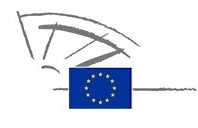The European Parliament has adopted the first EU-level instrument to screen for foreign direct investment on security grounds to protect strategic sectors.
While the EU remains open to investment, foreign direct investment will need to be screened to see if it poses a threat to the EU’s strategic interests. The new arrangements for screening, unofficially negotiated by EP negotiators and EU ministers, were backed by 500 votes in favor, 49 votes against and 56 abstentions.
The vote creates the first EU-wide system to support the screening of foreign direct investment by Member States for security and public order protection.
The new regulation protects key infrastructures such as energy, transport, communications, data, space and finance as well as technologies, including semiconductors, artificial intelligence and robotics. Negotiators from the European Parliament added sectors such as water, health, defence, media, biotechnology and food safety.
MEPs stepped up the cooperation mechanism to include an exchange of information between EU Member States that can comment on foreign direct investment targeting other Member States. The European Commission may request information and give an opinion to the country where the investment is planned but the final decision remains with the affected party.
The Council is expected to formally support the agreement on 5 March. The regulation will enter into force 18 months after its publication in the Official Journal of the EU.
Currently only 14 EU countries (Austria, Denmark, Germany, Finland, France, Latvia, Lithuania, Hungary, Italy, the Netherlands, Poland, Portugal, Spain and the United Kingdom) have mechanisms for screening FDI, which are widely differentiating in scope and structure. FDI has cross-border effects that can now be analyzed.
In the last 20 years, the structure and origin of FDI have changed drastically, with more direct foreign investment than emerging economies. Investments from China have grown 6 times, Brazil - 10 times, and those from Russia have doubled, lately targeting the high-tech sector, often through state-owned or government-owned companies.






